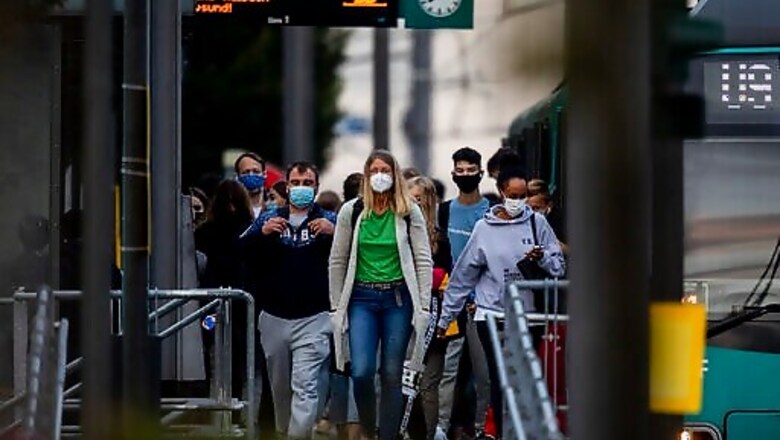
views
BERLIN: Germany’s unemployment rate declined in September despite the coronavirus pandemic, official data showed Wednesday. Jobless figures have been kept lower by extensive use of a short-term salary support program, but estimates show that the number of people receiving that support is also falling.
The unadjusted jobless rate, the headline figure in Germany, was down to 6.2% from 6.4% in August, the Federal Labor Agency said. Some 2.847 million people were registered as unemployed 108,000 fewer than the previous month, but 613,000 more than a year earlier.
That jobless rate stood at 5% in March, the last month before the impact of the pandemic was reflected in unemployment figures.
In seasonally adjusted terms, unemployment dipped to 6.3% in September from 6.4% in August.
Rises in unemployment in Germany and elsewhere in Europe have been moderate by international standards because employers are making heavy use of salary support programs, often referred to as furlough schemes, that allow them to keep employees on the payroll while they await better times.
In Germany, Europes largest economy, the labor agency pays at least 60% of the salary of employees who are on reduced or zero hours.
The labor agency said Wednesday it paid out for 4.24 million people in July, the most recent month for which it has figures. That was down from 4.63 million in June and a peak of 5.95 million in April, but far above the pre-crisis level in February of just 134,000. Germany has 83 million inhabitants.
The Ifo economic think-tank said this week that, according to its calculations, the number of people in the program was down to 3.7 million in September, though the number remains relatively high in manufacturing industry.
Germany wont be scaling back the program soon. The governing coalition has agreed to allow employees to remain in it for up to 24 months rather than the regular 12.
Germany started easing coronavirus restrictions in late April, but some remain. A recent increase in new infections has caused concern, prompting plans for restrictions on private gatherings in places where cases spike. The government is keen to keep businesses and schools open.
Disclaimer: This post has been auto-published from an agency feed without any modifications to the text and has not been reviewed by an editor















Comments
0 comment